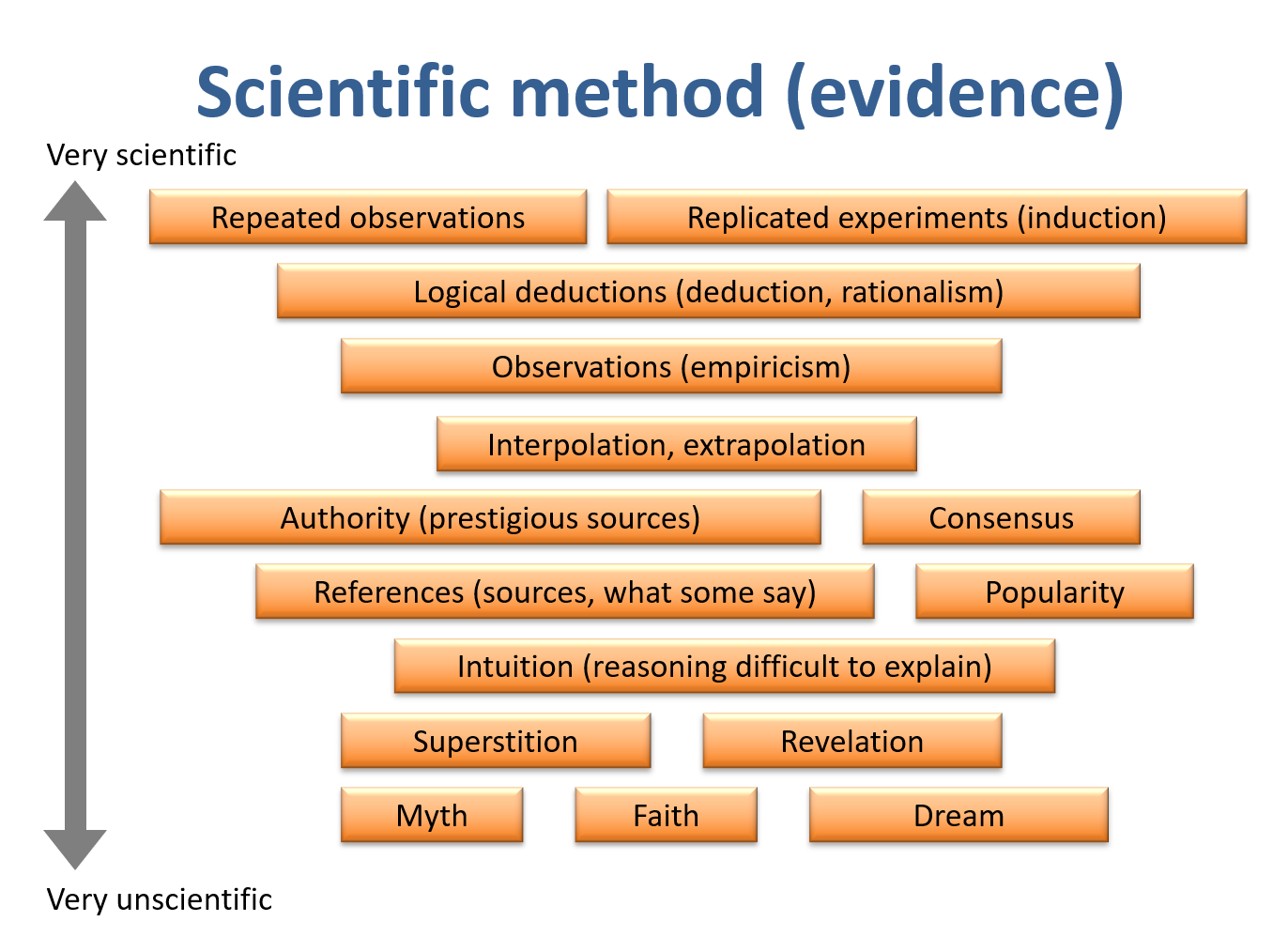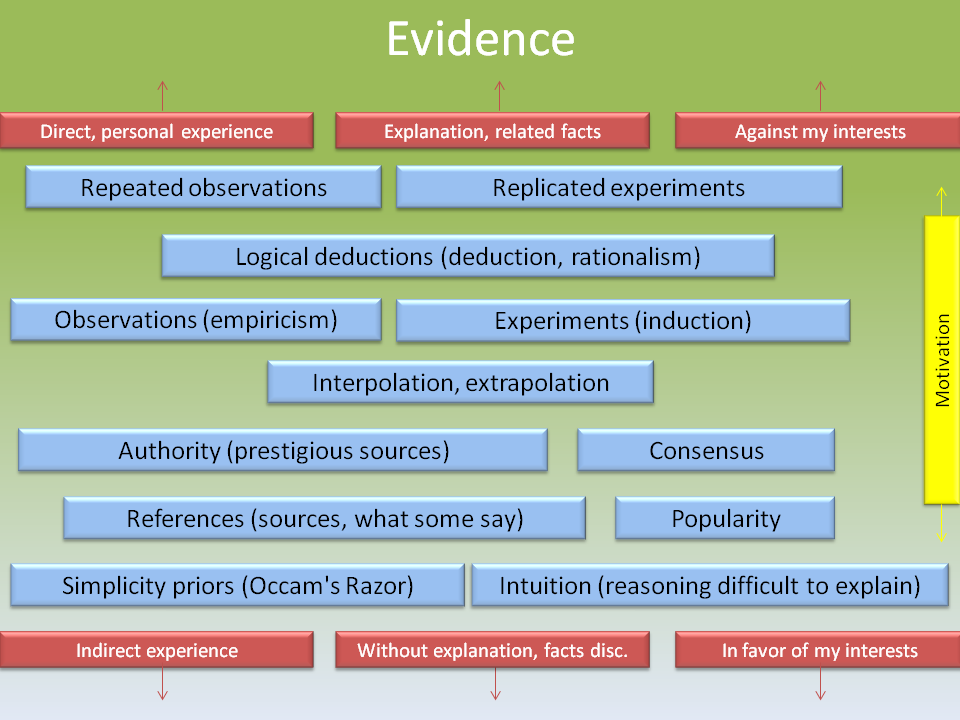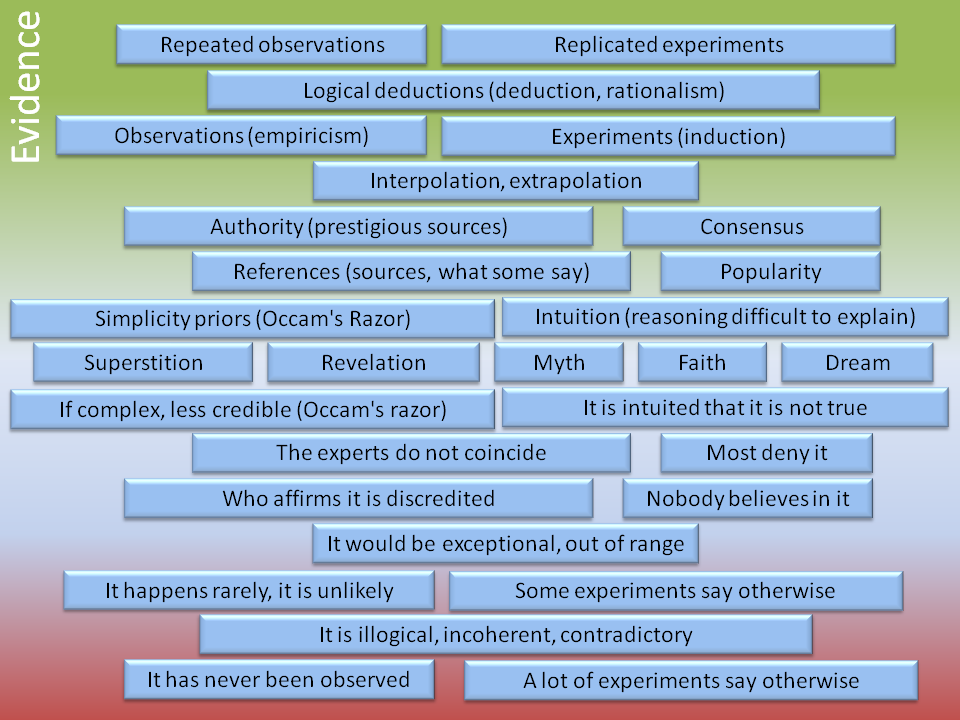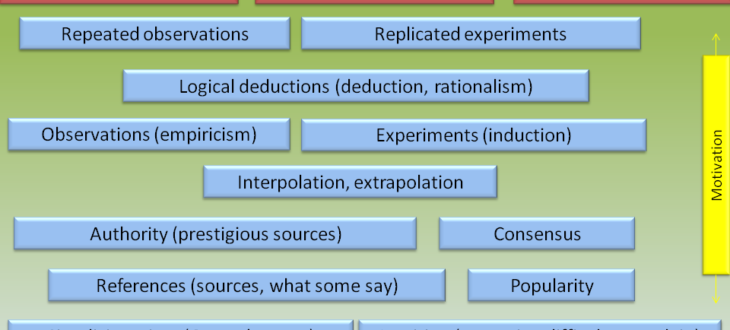“How do you know that science is a better belief system than others? Because it works. Planes fly. Cars drive. Computers compute. It works, bitches”. –Richard Dawkins
There are different types of evidence. Some of them are considered more “scientific” than others, I think in the sense of being more valid, more reliable.

Some significant arguments for and against some types of evidence
- It’s interesting to note that intuition is, at least sometimes, a valid form of knowledge, even the best available source of knowledge. Basically, this happens when you have to react quickly (to save life or reproduce). This book explains it very well.: https://en.wikipedia.org/wiki/The_Gift_of_Fear
- Problems with induction. The inductive turkey or “when someone dies, it’s never me.”
- Ockham’s Razor is one of the most controversial types of evidence. For some it is one of the pillars of scientific knowledge; for others it is simply false.
- It is interesting to note that appealing to authority is considered both an argumentative fallacy and a valid type of evidence (students are told that to successfully complete a scientific article they must cite sources from the academic literature).
Multiplier factors
When I found evidence, I try to take into account the motivation [1] of the being involved in the creation or communication of that evidence, which is a factor that can play in favor or against the credibility of that evidence. Credibility increases if we have a “Direct, personal experience”, if we generate an “Explanation (related facts)”, and if the evidence is “Against my interests”. The opposite factors (“Indirect Experience”, “Without an explanation, facts disconnected”, “In favor of my interests”) diminish the credibility of the evidence (IMHO).
[1] “motivation” in the sense of goals, desires, strategy… in the sense of answering the question “Why they are doing that?” (that = generating or comunicating that evidence). I include this because “Against my interests” vs “In favor of my interests” (selfishness), even if is the most basic aspect to understand human behaviour, sometimes is not enough (v.g. altruists, for instance, an animal advocate, cancer patient, arguing in favor of the use of economic resources to improve the welfare of animals instead of using them to improve the welfare of humans with cancer).

It could be said that these are “multiplying factors” of the evidence:
- Direct experience has more credibility than indirect experience
- If the facts are connected forming an explanation they are more plausible than if they are arbitrary, disconnected
- Making statements that go against my interest increases credibility, while making statements that are in my interest’s interest reduces credibility
Symmetry? It doesn’t look like it, but it looks interesting
In this other figure I represent what seems to be a certain symmetry between the types of evidence for or against something. But there are some problems. “It has never been observed” is a very bad type of negative evidence.


5 Comments